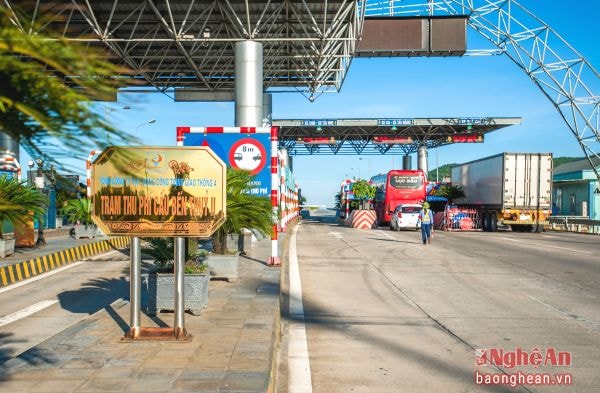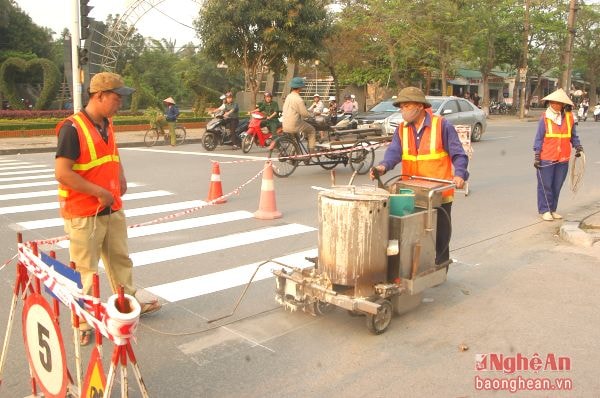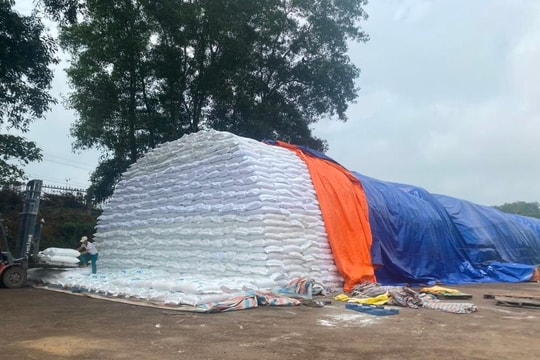Transparency in infrastructure development investment
(Baonghean) - In a recent workshop on issues related to BOT projects and the role of the State Audit, organized by the State Audit, Dr. Ho Duc Phoc - State Auditor General said that every country on its development path always focuses on developing its infrastructure system. This is the premise and foundation for the country's socio-economic development, the runway for the economy to take off.
In recent years, many national key projects and highways have been built in the transport infrastructure system in our country, creating rapid development in infrastructure, promoting economic growth and increasing national competitiveness. Many effective capital mobilization solutions based on diversifying participants to strongly develop infrastructure have achieved high results, including BOT projects.
 |
| Ben Thuy II Bridge Toll Station. Photo: Thanh Cuong |
However, in addition to the results achieved such as the development of roads, bridges, and other infrastructure using socialized capital, there are still many issues that need to be resolved both in theory and practice. Many opinions on the mass media and voters' opinions are related to the State's management role, transparency, efficiency, and accountability for investment in road traffic infrastructure projects in the form of BOT contracts such as: Investment policy, selection of investment projects, investment procedures, selection of investors, investor capacity, project quality management, cost, investment efficiency, fee levels and collection time, project management mechanisms and policies, etc.
In addition, the arrangement of toll stations to recover capital for some projects is not according to planning or regulations, the collection level and time are not reasonable, causing difficulties for people and businesses, negatively affecting the economy, which is a problem that needs to be overcome.
According to Dr. Ho Duc Phoc, the State Audit (SA) with its assigned functions and tasks is to audit the management and use of public finance and public assets according to the law. Therefore, the SA has the task of auditing BOT projects to contribute to increasing transparency, limiting losses, reducing burdens for people and businesses, and enhancing accountability in the implementation of BOT projects for state agencies and investors, creating trust for the people.
In the context of limited State budget and infrastructure investment resources, implementing investment projects in the form of BOT contracts is very important and necessary. The problem is that we need to have a way to select projects, manage, increase transparency and accountability, thereby not only improving investment efficiency, ensuring harmony of interests between investors and people and businesses, but also contributing to attracting capital into different fields to develop the country's economy.
This requires managers and scientists to discuss issues and aspects related to investment management and auditing of BOT projects from a legal, scientific and practical perspective, thereby making appropriate recommendations to State agencies in adjusting policies and methods of managing BOT projects to maximize the effectiveness of BOT capital sources - State Auditor General Ho Duc Phoc affirmed.
Sharing this view, Associate Professor, Dr. Nguyen Trong Co (Academy of Finance) said that many issues of public concern related to toll collection of BOT projects in the road sector need to have satisfactory answers in both theory and practice. Is it necessary and should we develop the road infrastructure system in the form of BOT? What is the reasonable toll level? Toll collection time? How is the quality of the project controlled?... In essence, it is not only a matter of BOT in the road transport sector, but also a matter of the form of public-private partnership (PPP) investment in the field of road transport infrastructure construction.
A good road system facilitates the movement of goods between localities in the country, helping to reduce transportation costs due to shortened distances and improved road quality; in addition, it helps to save travel time for goods and save travel time for road users.
In practice, whenever the road system is upgraded, the socio-economic landscape of that locality changes completely, developing rapidly in a short time. This shows that it is necessary to invest quickly and appropriately to develop road traffic infrastructure.
 |
| Vinh City Urban Infrastructure Management and Development Company paints lane dividers. Photo: Dinh Nhat |
Although road infrastructure plays such an important role, investment in this field has the outstanding feature of requiring a large amount of investment capital. With the traditional investment method, the State allocates a part of the budget to invest in road infrastructure; because the State budget is used for construction investment, that is, from the people's tax money, the State cannot collect fees from users, except in the case of collecting road maintenance fees. With a very large investment rate, relying on the State budget to invest in developing the road infrastructure system will not meet the investment needs for this field. Especially in developing countries, the State budget is not abundant, public debt is high, but the need for investment in road infrastructure is very large.
The above analysis shows that to develop road transport infrastructure, we cannot only rely on investment from the State budget, but need to mobilize investment capital from the private sector. However, the investment principle of the private sector is to recover capital and ensure profit. That is, if the private sector invests, after investing, the private sector must collect fees or rent... The emergence of the public-private partnership model is the key to this problem - Associate Professor, Dr. Nguyen Trong Co said.
Red River
| RELATED NEWS |
|---|




.jpg)



